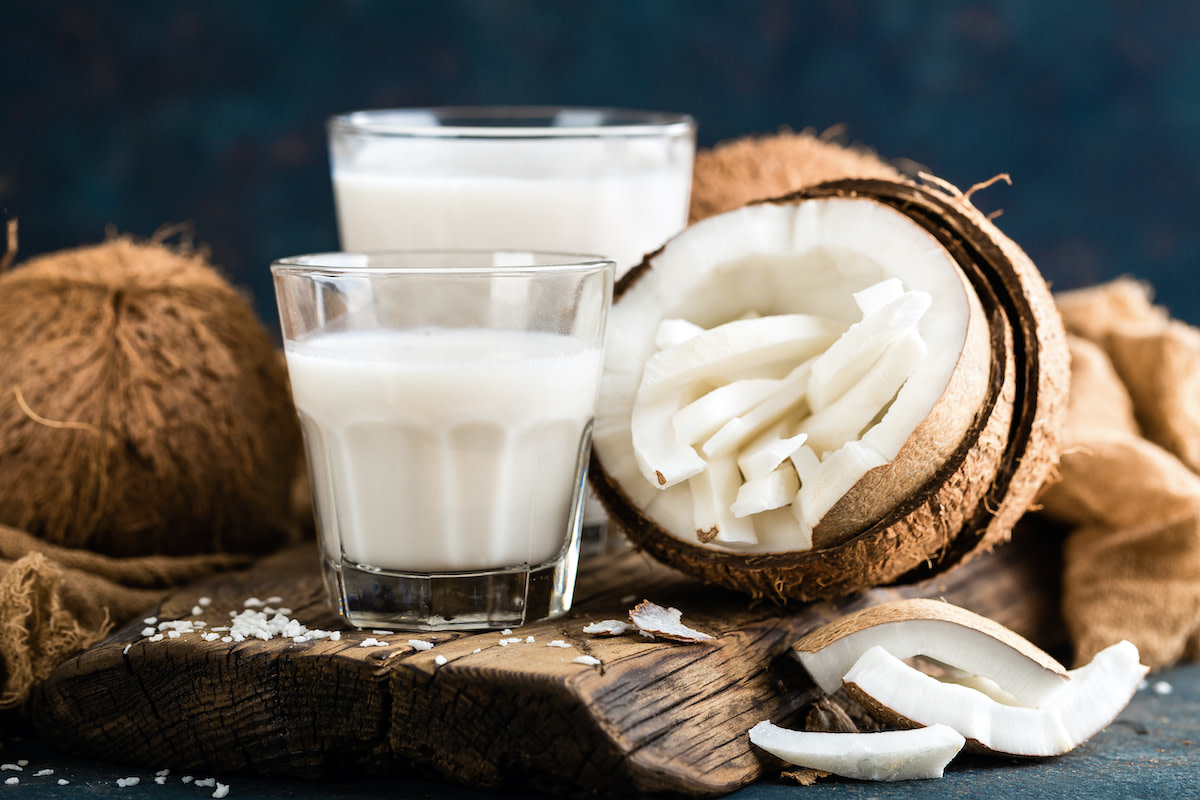Coconut Milk vs. Coconut Water: What’s the Difference?
Written by MasterClass
Last updated: Sep 28, 2021 • 3 min read
Coconut milk and coconut water are beverages made from the Cocos nucifera plant, otherwise known as the coconut palm. Coconut water is a clear, fat-free liquid that is a ready-to-drink beverage, while coconut milk is a processed beverage.
Learn From the Best
What Is Coconut Milk?
Coconut milk is a beverage made from processed coconut meat. It is a dairy-free, gluten-free product that you can use as a milk substitute for cow’s milk. Some brands of coconut milk contain added sugars. Canned coconut milk is typically coconut milk with added stabilizers but is unsweetened, with no added sugar.
You can find coconut milk at most grocery stores. You can use coconut milk in cooking. It’s a common ingredient in Southeast Asian cuisines, especially in Thai cooking. Use full-fat coconut milk or light coconut milk to make recipes such as curries or soups. You can also add coconut milk as a milk alternative to smoothies.
How Manufacturers Make Coconut Milk
To make coconut milk, food processors shred mature coconut flesh and soak it in hot water. During processing, the coconut cream rises to the top, where the manufacturers can skim it off. Then they strain the remaining liquid to remove the pulp, resulting in the final product of coconut milk. To make light coconut milk, the processor further dilutes the coconut milk with water or other additives, such as guar gum (a stabilizer). Light coconut milk contains less fat content than a regular can of coconut milk.
What Is Coconut Water?
Coconut water is the clear liquid that naturally occurs in young coconuts. If you see a green coconut, that’s a young coconut, and the center contains juice. As the coconut ages, it turns into a brown coconut, and the white coconut flesh absorbs the natural coconut juice.
You can drink fresh coconut water straight from a young green coconut (simply drill a small hole and insert a straw). Or you can find coconut water in cartons in the grocery store. For the most natural coconut water, read the label to determine if it is free of preservatives—look for coconut water without any added sugar content.
Coconut water is a low-calorie beverage, though it is not recommended for weight loss as it contains about fifty calories per cup. It is fat-free, but it does contain carbs. Coconut water contains high levels of potassium and magnesium, and it contains electrolytes. For that reason, some turn to coconut water as a ready-to-drink, post-workout beverage. However, nutritionists recommend drinking plain water for post-workout rehydration.
How Manufacturers Make Coconut Water
Distributors harvest coconut water from fresh, young coconuts. First they crack open the coconuts to drain them. Then they collect the coconut water and pasteurize them to kill bacteria and extend the shelf life. Most grocery store brands add vitamin C (in the form of ascorbic acid) to prevent discoloration. Some brands of coconut water do not add vitamin C, and when the natural antioxidants in the coconut water react to sunlight, the water turns pink.
3 Differences Between Coconut Milk vs. Coconut Water
Both coconut products come from coconuts, but coconut milk is typically an ingredient in cooking or in smoothies, while you can drink coconut water straight from the carton. Here are additional differences to consider:
- 1. Fat content: Coconut milk has a higher fat content than coconut water. On average, a cup of coconut milk contains forty-five to fifty grams of fat. In contrast, coconut water is fat-free.
- 2. Flavor: Coconut milk has a more intense coconut flavor, while coconut water tastes like a light fruit juice with a hint of coconut flavor.
- 3. Processing: Coconut milk is a byproduct of soaking shredded coconut in water, whereas coconut water is minimally processed (though pasteurized to prevent bacteria growth).
Want to Learn More About Cooking?
Become a better chef with the MasterClass Annual Membership. Gain access to exclusive video lessons taught by the world’s best, including Gordon Ramsay, Gabriela Cámara, Chef Thomas Keller, Dominique Ansel, Yotam Ottolenghi, Alice Waters, and more.
